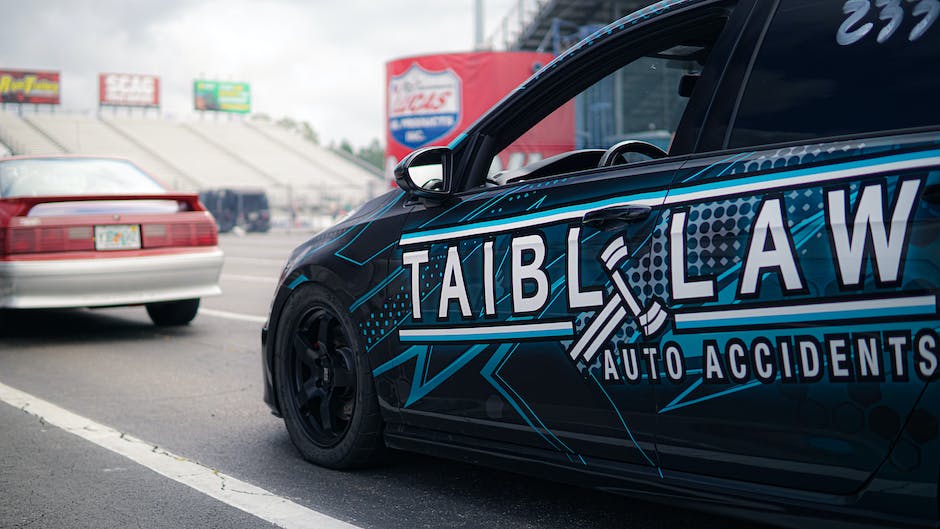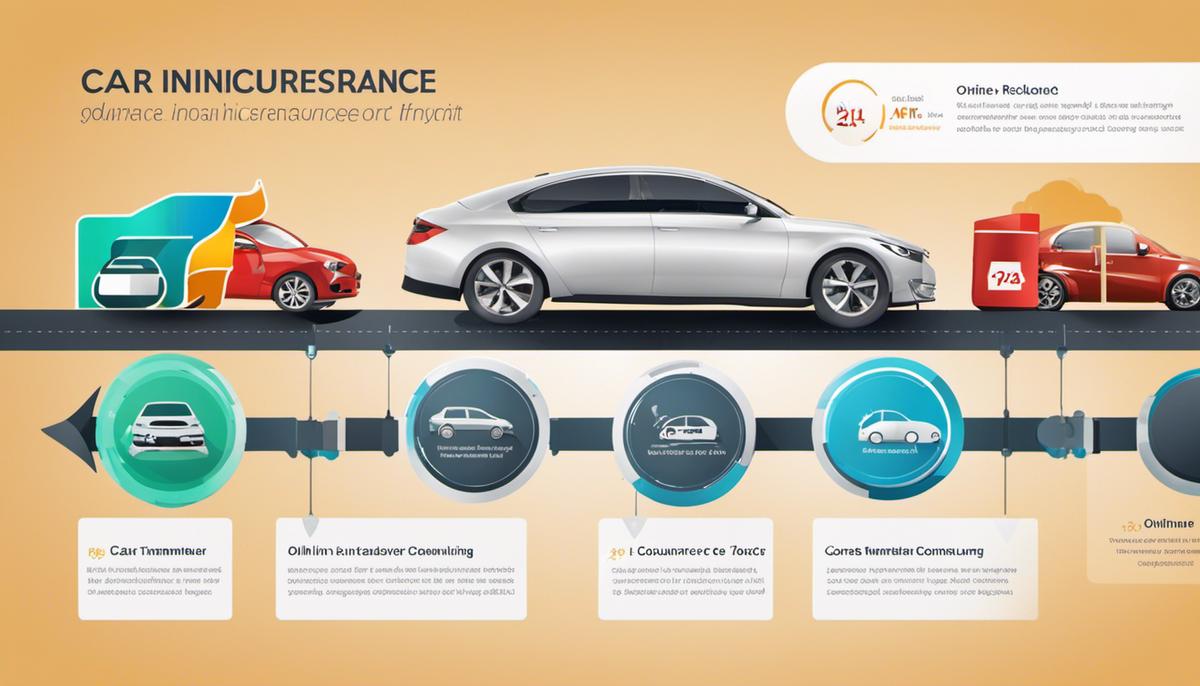In this age of technological advancement, the car insurance industry has undergone transformative changes, shifting from traditional brick-and-mortar business models to sophisticated online platforms. This transition, driven by the integration of technologies such as artificial intelligence (AI) and big data, has revolutionized the way consumers understand, compare, and purchase car insurance. This essay explores the historical progression of car insurance comparison, the current market dynamics shaping the industry, key players and their innovative contributions, and the promising future prospects in the field.
Table of Contents
The Evolution of Car Insurance Comparison
Technology Revolutionizes the Art of Comparing Car Insurance
Car insurance consumers no longer need to painstakingly call multiple agents, go from website to website, and engage in tedious note-taking of various rates to find the best deal. Thanks to the continuous evolution of technology, we now live in an era where comparing car insurance has been streamlined to a user-friendly, time-efficient process.
Before the digital age, insurance comparison was a grueling exercise in patience and perseverance. Traditional methods involved scouring through yellow pages, calling individual agencies, and enduring lengthy audio prompts or painful on-hold music waiting for an agent who could provide a quote. However, the digital revolution has invalidated these antiquated methods, as prospective car insurance consumers now enjoy faster and more accurate insurance comparisons.
Advances in internet connectivity have ushered in an era of digital platforms that quickly aggregate and compare car insurance policies. These aggregator sites collect relevant data with a few keystrokes and clicks, processing information at lightning speeds, providing consumers with a list of potential policy matches. These user-friendly platforms revolutionize the way consumers search and compare car insurance policies, saving them valuable time and energy.
Artificial intelligence has also significantly impacted the car insurance comparison process. Sophisticated algorithms take into account a wide range of factors, including driving records, credit scores, and vehicle history reports. These details are then matched against insurance databases, generating targeted insurance policy options. This kind of precise personalization was unimaginable during the pre-digital era.
Mobile technology also deserves a special shout out in this context. Smartphone apps have taken the process of comparing car insurance to a new level of convenience, putting a veritable insurance marketplace at the fingertips of a consumer. Customers can now compare quotes, understand policies, and even purchase insurance from the comfort of their couch, all while watching a football game.
Intriguingly, technology is not just making the process faster and easier; it’s actually fostering more competitive pricing too. Greater transparency and the ease of comparison mean that insurance companies are under constant pressure to offer the most attractive rates possible. This heightened competition acts as a boon to the smart shopper seeking the best value.
Blockchain technology also holds tremendous potential to further revolutionize the car insurance comparison process. As trustless, decentralized networks, blockchains can ensure the security and privacy of personal data while offering seamless interoperability between different insurance systems.
However, with the advent of technology, consumers ought to retain their discerning mindset. Not all digital insurance platforms offer an unbiased comparison, with some prioritizing sponsors or advertising partners. A discerning customer should verify the authenticity of the services offered by these platforms and cross-verify on multiple platforms.
Make no mistake, the evolution of technology has irrevocably transformed the approach to comparing car insurance. From tedious manual processes, we have moved to an era where data processing technologies, AI, mobile apps and blockchain promise an easy, accurate, and efficient way not only to compare but also to buy insurance.
The comparison of car insurance has become more customer-friendly because technology has been leveraged smartly, offering huge dividends to the discerning consumer. The future is bright, and the expectation is that technological innovations will only continue to simplify and expedite the process of insurance comparison, putting more power than ever before in the hands of consumers.

The Market Dynamics of Car Insurance
Assessing the Role of Market Dynamics in Shaping Car Insurance Comparison Services
In the vibrant landscape of current market dynamics, a keen understanding of how these forces mold the functioning of car insurance comparison services is indeed paramount.
Firstly, consider the interaction of supply and demand. Undoubtedly, as consumer awareness widens, it ferments the demand for transparency which, in turn, directs companies to provide comprehensive insurance comparisons. As more players join the market, the increased competition sparks an incentive for each company to accentuate its unique selling propositions. Hence, these comparisons aren’t merely a collage of information but meticulously crafted insights that empower the consumers to make informed decisions.
Regulatory changes also wield considerable influence. For instance, regulations dictating a uniform policy structure or transparent pricing models will dictate the method by which insurance comparison tools assemble and display their information. Countries with regulated markets often offer the most user-friendly comparison tools, as their uniformity of standards simplifies the comparison process.
The macroeconomic climate is another critical factor. During periods of economic downturn, consumers look for ways to cut costs, leading to an increased usage of car insurance comparison services. Consequently, these tools constantly evolve to offer the widest range of policy options aimed at budget-conscious customers.
Societal shifts can also significantly alter the landscape. As engines thunder towards an electric future, how will car insurance comparison sites reflect the new risks and benefits? Undeniably, they will need to adapt their comparison algorithms to cater to new parameters, like the cost of replacing electric vehicle parts or the reduced risk due to enhanced safety features.
Addressing the elephant in the room, let’s look at data security. Post the Cambridge Analytica scandal, public anxieties around data privacy have surged, raising the expectation of data security. Hence, comparison services must prove their commitment to data protection to ensure consumer trust.
Despite the volatility of market dynamics, the robust growth in the market size of car insurance comparison services offers an optimistic outlook. Lured by the charm of simplicity, ease, and cost-effectiveness, customers continue to funnel towards these platforms. Insurance companies also appear keen to leverage these platforms, for fear of missing out on a burgeoning customer base.
Bear in mind, the actors pivoting the wheel aren’t solely the market factors; technology too takes center stage. Infusions of new technological advancements such as IoT and analytics are set to redefine how car insurance comparisons are made. An era where car insurance policies are not just compared but predicted for the individual could be just around the corner.
In conclusion, market dynamics and insurance comparison services are like interlocking gears in a complex machine, each influencing and dictating the operations of the other. It’s a dynamic push and pull of trends, regulations and societal shifts, and those who embrace this flux will be the leaders of this ever-evolving industry.

Key Players and Innovations in Car Insurance Comparison
Cracking the code of the constantly evolving car insurance comparison industry, it becomes evident quickly that several players have made their mark. They not only offer extraordinary services but have also ushered in a wave of pioneering products that are turning the industry on its head.
Prominent among these industry vanguards is Compare.com, a trailblazer known for its extensive service offerings. Providing customers with quotes from a wide spectrum of insurance providers, they have intricately woven the web of supply and demand balance, thereby ensuring businesses and consumers come out on top. However, they are not just about comparisons; they ambitiously delve into analytics, employing cutting-edge algorithms to provide precise matches to customer’s insurance needs.
Then we have Zebra, a name synonymous with high-tech car insurance comparison services. This platform expertly utilizes IoT (Internet of Things) technology to gather insightful data. From driving habits to car models and everything in between, Zebra can extract in-depth information. Consequently, it can provide its users with incredibly personalized and accurate insurance comparisons.
Meanwhile, EverQuote has caught the wind of the regulatory changes and has adjusted its sails accordingly. Its interactive platform caters to the dynamic insurance market, effortlessly handling regulatory adjustments for seamless service delivery. The tech-savvy user interface is enticing, drawing users in and persuading them to explore affordable and law-compliant insurance options.
In light of societal shifts, GoCompare is ascendant. This site anticipates societal trending patterns, such as eco-consciousness or remote work’s rise, and matches users with ideal insurance policies that cater to these emerging needs. It is a genius embodiment of adaptability in the transformative and fast-paced insurance world.
As we unravel the myriad of economic influences on car insurance comparison usage, we find Confused.com atop the pinnacle. This platform actively monitors and adjusts to the fluctuating macroeconomic environment, supporting users in choosing the most financially presumptuous insurance options.
On the data security front, esurance has achieved a notable stride. Faced with increasing privacy concerns and security risks in the digital era, esurance applies stringent data protection measures, thereby projecting a safe environment for comparing car insurance services.
While these companies have already instilled revolutionary changes to the car insurance comparison market, they are only the spearhead of a grand army of innovations to come. Rapidly developing technologies, interconnected market dynamics, intense competition, and changing customer behavior patterns will constantly redraw the battle lines.
Hence, it is excitement, not tension, that electrifies the air in the car insurance comparison industry. For in this arena where creativity and robust analytics fuse, whoever keeps stride with the tide of change and uncovers the secrets hidden in the vast ocean of data will conquer and craft the future of car insurance comparisons.

Future Prospects of Car Insurance Comparison
Peering into the future of car insurance comparison, one can envisage a landscape not tied down by the lines drawn between industries but more of an intersection where multiple sectors converge. The services offered by companies such as Compare.com, Zebra, EverQuote, GoCompare, and Confused.com aptly illustrate this trend.
The dynamics of supply and demand are interwoven within the fabric of car insurance comparison services. Rising car ownership globally heightens demand for these services, and sophisticated technologies are being leveraged to meet this demand and spruce up supply. Case in point, Zebra’s use of the Internet of Things (IoT) to gather granular data for more robust and accurate insurance comparisons – representing a seismic shift from traditional demographics-based underwriting methods.
Navigating the capricious winds of regulatory changes is also a defining trait of leading insurance comparison platforms. Evolving legal landscapes in response to technological innovations or political shifts can burden firms with the task of compliance. Companies like EverQuote highlight resilience in this regard, effortlessly climbing regulatory walls and incorporating changes to ensure a seamless, user-friendly experience.
Societal shifts also punctuate the arena of car insurance comparison. As lifestyles get increasingly fast-paced and digital, consumer behavior concurrently evolves. GoCompare, in response to this, taps into the pulse of societal trends to match users with insurance policies that satisfy their emerging needs effectively.
A sound understanding of the macroeconomic climate is pivotal as well. Economic instabilities, inflation, or changes in employment rates can steer the direction of consumer behavior. It’s platforms like Confused.com which stay adept at monitoring the evolving macroeconomic conditions and assist users in making financially efficient choices.
Amid the digital boom, data security and privacy concerns have also garnered a prominent foothold in the discussion surrounding insurance comparison services. Asymmetries in data management can be catastrophic for insurance comparison services, considering the sensitive nature of the customer data handled. Recognizing this, companies such as Esurance prioritize stringent data protection measures to create a secure environment for their users.
Furthermore, the car insurance comparison services market is showing signs of robust growth and potential, a fertile soil for future innovation and creativity. The increasing digital ubiquity, rising consumer awareness about insurance, and the escalating need for risk management underline this growth.
Besides, the incorporation of advanced technologies like IoT, Machine learning, and data analytics is a game-changer, helping dissect complex data, uncover insightful patterns, and facilitate smarter purchases. Zebra’s use of IoT is a case in point.
Lastly, considering the multi-faceted nature of the insurance comparison industry, its interconnectedness with various market dynamics is palpable. A shift in any of the correlated sectors – automotive, technology, legislation, to name a few, influences the insurance comparison industry directly. Therefore, building future-proof strategies that are versatile and adaptable is crucial for businesses in this industry.
In summary, the future of car insurance comparison services is looking exciting, bursting with untapped potentials. A complete overhaul of traditional methods and a galvanizing adoption of digital trends have the industry poised for innovation. The wheels are turning, and the ride ahead promises to be thrilling.

As we delve into the future, it is clear that the car insurance comparison industry will continue to adapt and innovate to cater to the evolving needs of consumers. The burgeoning trends of autonomous vehicles and Internet of Things (IoT) could bring about an unprecedented paradigm shift, necessitating a reconceptualization of existing models and creating opportunities for new market disruptors. Evidently, the journey of car insurance comparison has only just begun, the trajectory of its evolution significantly dictated by the intersecting pathways of technological advancement and market forces.

Amara Rainforest is an authoritative voice in business analysis, blending her MBA in Finance insights with real-world consulting experience. She distills complex market trends into clear, actionable advice for her readers. Her engaging writing captures the essence of modern business challenges and triumphs, making her a must-follow for aspiring entrepreneurs and seasoned executives alike.

